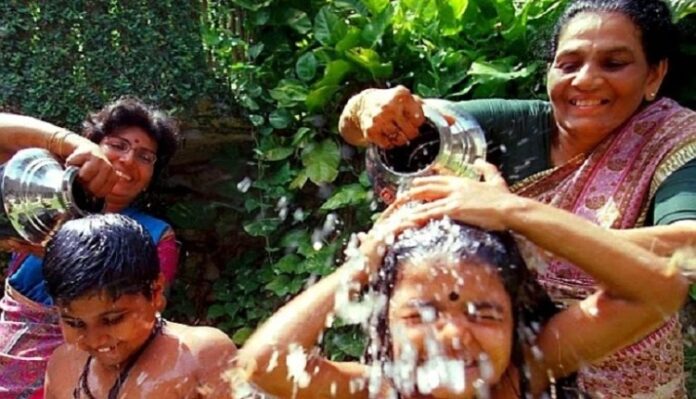Introduction:
The significance of oil bath on Diwali attracts a lot of people. Otherwise known as festival of lights, Diwali is celebrated with great enthusiasm and fervour across India and among Indian communities worldwide.
While the festival is known for its dazzling array of lights, vibrant decorations, and the exchange of sweets and gifts, there is another tradition that holds a significant place in Diwali celebrations – the oil bath. This age-old practice has deep cultural and health significance, making it an integral part of Diwali festivities.
Cultural Significance:
The tradition of taking an oil bath on Diwali is rooted in ancient Indian customs and rituals. According to Hindu mythology, Diwali marks the return of Lord Rama to Ayodhya after defeating the demon king Ravana. To welcome him and celebrate his victory, the people of Ayodhya lit oil lamps. Taking an oil bath on this auspicious day is believed to symbolize the cleansing of the body and soul, preparing oneself for a new beginning, just as Lord Rama’s return signified the triumph of light over darkness.
Purification and Renewal:
An oil bath on Diwali is not just a cultural ritual; it also carries health benefits. Naturally, oil bath comes with effective health benefits. The practice involves massaging the body with warm oil, which is believed to improve blood circulation, ease the nerves, and nourish the skin. The heat generated during the oil bath is helpful in opening the pores, ensure to release toxins from the body. This detoxification process is considered essential for maintaining overall well-being.
Ayurvedic Perspective:
Ayurveda, the ancient Indian system of medicine, emphasizes the importance of regular oil massages (Abhyanga) for maintaining health and promoting longevity. Diwali, being a time of heightened spiritual energy, is considered particularly auspicious for engaging in such self-care practices. The use of specific oils, such as sesame oil or herbal oils, is believed to have therapeutic effects, providing not only physical but also mental relaxation.
Stress Relief and Mental Clarity:
In the bustling modern life, stress has become a common ailment. The calming effects of an oil bath extend beyond the physical realm. The practice is known to induce a sense of relaxation, lower stress levels, and enhance mental clarity. As Diwali is a time for family gatherings and joyous celebrations, ensuring mental well-being becomes crucial for fully enjoying the festive spirit.
Conclusion:
Taking an oil bath on Diwali is more than just a traditional ritual – it is a holistic practice that combines cultural significance with health benefits. As families come together to celebrate the triumph of light over darkness, incorporating this ancient tradition into the Diwali festivities adds a meaningful layer to the joyous occasion. The oil bath serves as a reminder to cleanse not only the body but also the mind and spirit, promoting overall well-being and ushering in a sense of renewal and positivity for the coming year.


